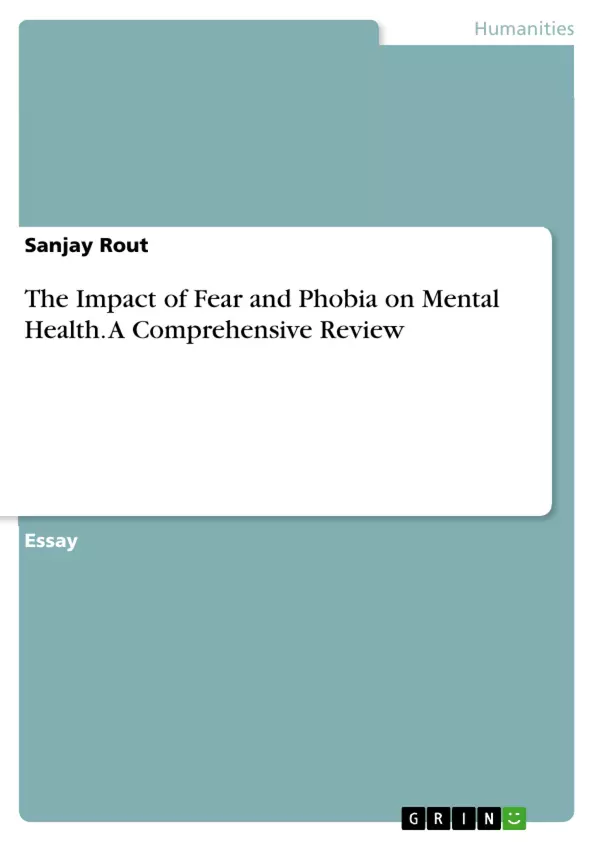This paper investigates the profound effect of worry and phobias on intellectual fitness through a complete assessment of present literature. Objectives encompass analyzing occurrence costs, exploring theoretical frameworks, and studying empirical studies to clarify the cognitive, emotional, and behavioral consequences of fear and phobias. Key findings reveal that worry and phobias considerably impair each day functioning, exacerbate comorbid mental fitness situations, and pose demanding situations to treatment efficacy. Implications for mental fitness studies underscore the necessity for incorporated procedures in clinical exercise, emphasizing early intervention strategies and culturally touchy remedies to mitigate lengthy-time period psychological distress. This evaluates advocates for improved public fitness rules and community-based totally interventions aimed at improving effects for individuals affected by fear and phobias, thereby promoting mental properly-being on a global scale.
Table of Contents
- Introduction
- Literature Review
- Psychological, Neurological, and Physiological Effects
- Theories and Models of Fear and Phobia Development
- Relationship with Other Mental Health Disorders
- Methodology
- Selection of Relevant Studies and Articles
- Search Strategy for Literature Review
- Data Synthesis and Analysis
- Results
- Impact of Fear and Phobia on Mental Health
Objectives and Key Themes
This paper presents a comprehensive analysis of literature examining the impact of fear and phobia on mental health. The objective is to synthesize findings from empirical research, theoretical frameworks, and scientific observations to understand the multifaceted effects of fear and phobia on mental well-being. The paper also aims to inform clinical practice, public health policy, and advocacy efforts geared toward promoting mental well-being across various populations.
- The psychological, neurological, and physiological effects of fear and phobia
- Theoretical models explaining the development and maintenance of fear and phobias
- The relationship between fear and phobia and other mental health disorders
- The impact of fear and phobia on daily functioning and quality of life
- Implications for clinical practice, public health policy, and research
Chapter Summaries
The Introduction chapter discusses the prevalence and impact of fear and phobias on mental health, highlighting their significance in clinical practice and research. The Literature Review section critically evaluates existing research focusing on the psychological, neurological, and physiological effects of fear and phobias, examines theories explaining their development and maintenance, and explores their relationships with other mental health disorders.
The Methodology chapter outlines the criteria and strategies used for selecting relevant studies and articles, the systematic search strategy employed, and the data synthesis and analysis methods. The Results chapter summarizes the findings from the reviewed literature, emphasizing the psychological, neurological, and physiological effects of fear and phobias on mental health, and discusses the implications for clinical practice, public health policy, and research.
Keywords
The paper focuses on the impact of fear and phobia on mental health, encompassing key terms such as anxiety disorders, phobic disorders, cognitive-behavioral therapy, neuroimaging studies, comorbidity, clinical implications, public health policy, and advocacy efforts.
- Quote paper
- Dr. Sanjay Rout (Author), 2020, The Impact of Fear and Phobia on Mental Health. A Comprehensive Review, Munich, GRIN Verlag, https://www.hausarbeiten.de/document/1494519


